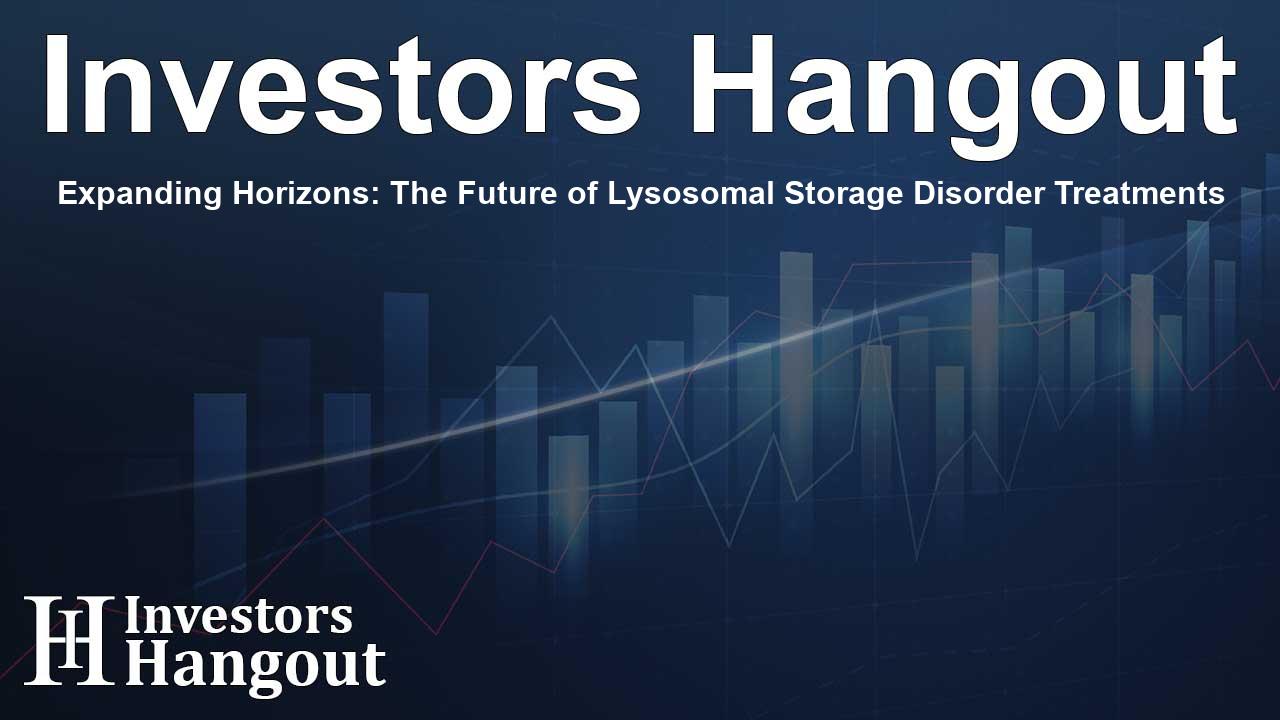Expanding Horizons: The Future of Lysosomal Storage Disorder Treatments

Understanding Lysosomal Storage Disorders and Their Impact
Lysosomal storage disorders (LSDs) represent a challenging group of inherited metabolic diseases caused by the malfunctioning of lysosomal enzymes, essential for breaking down complex molecules. Over 50 types of LSDs are recognized, each presenting unique symptoms and complications. Commonly known disorders include Gaucher disease, Fabry disease, Tay-Sachs disease, and Pompe disease, each affecting various organs and systems within the body.
The accumulation of undigested substrates within the lysosomes leads to various physical and neurological complications that can significantly affect a patient's quality of life. Often, symptoms manifest early in life, although adult-onset forms exist and can vary in severity from mild to life-threatening. Families dealing with these disorders encounter not only physical challenges but also emotional and financial burdens stemming from ongoing treatment requirements and supportive care.
Growth of Innovation in Treatment Options
The landscape of LSD treatment is evolving rapidly, driven by advancements in gene therapy, enzyme replacement therapies (ERT), and improved diagnostic capabilities. Increased awareness and early detection are expanding the patient population, thereby enhancing the demand for innovative treatment options.
Among the leading therapies, ERT focuses on supplementing enzyme deficiencies to alleviate symptoms. Although promising, current approaches are not curative and necessitate lifelong treatment. Many patients depend on these therapies to manage their conditions and enhance their quality of life. Furthermore, substrate reduction therapies (SRT) aim to decrease the production of offending substrates, providing another layer of management for LSDs.
Market Segmentation and Future Outlook
The market for LSD treatments is diverse, segmented into various types based on specific disorders. Each disorder presents unique challenges and growth opportunities. For instance, the ongoing research into Tay-Sachs and Gaucher diseases demonstrates considerable potential for new therapies that could alter disease progression.
DelveInsight has conducted extensive market assessments on LSDs, showcasing a comprehensive understanding of treatment practices and emerging therapeutic candidates. As these reports highlight, company strategies are aligning toward innovative solutions that promise better patient outcomes.
Patient-Centric Treatment Approaches
A major focus within the LSD treatment space is patient-centered care, which emphasizes improving not just survival rates but also enhancing overall quality of life. Innovative therapeutic approaches such as gene therapy are currently in clinical trials, showing promise in correcting the underlying genetic causes of these disorders. Although such therapies remain in development phases, successful outcomes will mark significant milestones in LSD treatment.
The pursuit of gene therapy reflects a broader trend towards precision medicine, tailoring treatment solutions to individual patient needs. As companies and research institutions continue to collaborate, they are unlocking new potential in the management of rare genetic disorders.
Cultural and Economic Considerations in LSD Treatment
Economically, the cost of treatment for LSDs can be quite burdensome, particularly in resource-limited settings. Accessibility remains a pressing issue, prompting advocacy for improved healthcare policies that can facilitate treatment availability for affected individuals worldwide.
Moreover, cultural awareness regarding rare diseases is crucial for fostering understanding and support within communities. As organizations and patient advocacy groups work toward raising awareness, they continue to create a foundation for enhanced accessibility to treatments and supportive services.
Conclusion: A Look Toward the Future
As we look ahead, the lysosomal storage disorders market is set for significant expansion. With continuous developments in therapeutic approaches and increased investment in research, there is hope that future treatments will not only manage the symptoms but also address the core issues driving these complex disorders.
The landscape of LSD therapies will undoubtedly evolve, influenced by regulatory advancements, technological innovations, and ongoing research initiatives. Collaboration across sectors—including regulatory bodies, pharmaceutical companies, and patient advocates—will play an essential role in driving these advancements.
Frequently Asked Questions
What are lysosomal storage disorders?
Lysosomal storage disorders are a group of inherited metabolic conditions caused by defects in lysosomal enzymes, leading to the accumulation of undigested substrates.
What are the common types of lysosomal storage disorders?
Common types include Gaucher disease, Fabry disease, Tay-Sachs disease, and Pompe disease, each affecting different organs and systems.
What treatment options are available for LSDs?
Treatment options primarily include enzyme replacement therapy (ERT) and substrate reduction therapy (SRT), with emerging gene therapies showing promise in clinical trials.
How is the market for LSD treatments evolving?
The market is expanding due to advancements in diagnosis and treatment, growing awareness, and increasing patient advocacy, resulting in more innovative therapies.
What challenges do patients face regarding LSD treatments?
Patients often face economic burdens due to high treatment costs, limited accessibility in low-resource settings, and a lack of curative options for many LSDs.
About The Author
Contact Dylan Bailey privately here. Or send an email with ATTN: Dylan Bailey as the subject to contact@investorshangout.com.
About Investors Hangout
Investors Hangout is a leading online stock forum for financial discussion and learning, offering a wide range of free tools and resources. It draws in traders of all levels, who exchange market knowledge, investigate trading tactics, and keep an eye on industry developments in real time. Featuring financial articles, stock message boards, quotes, charts, company profiles, and live news updates. Through cooperative learning and a wealth of informational resources, it helps users from novices creating their first portfolios to experts honing their techniques. Join Investors Hangout today: https://investorshangout.com/
The content of this article is based on factual, publicly available information and does not represent legal, financial, or investment advice. Investors Hangout does not offer financial advice, and the author is not a licensed financial advisor. Consult a qualified advisor before making any financial or investment decisions based on this article. This article should not be considered advice to purchase, sell, or hold any securities or other investments. If any of the material provided here is inaccurate, please contact us for corrections.
